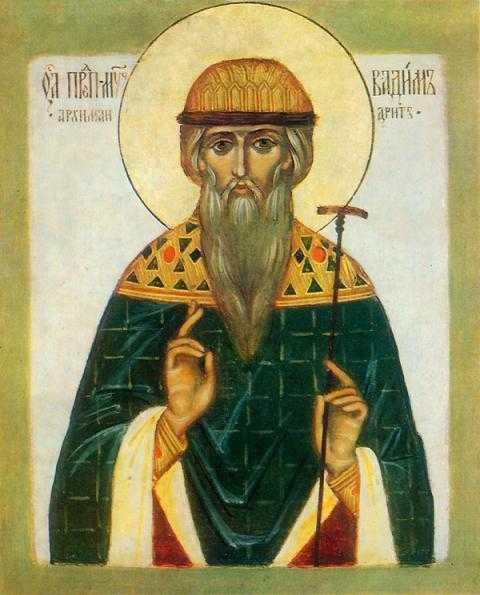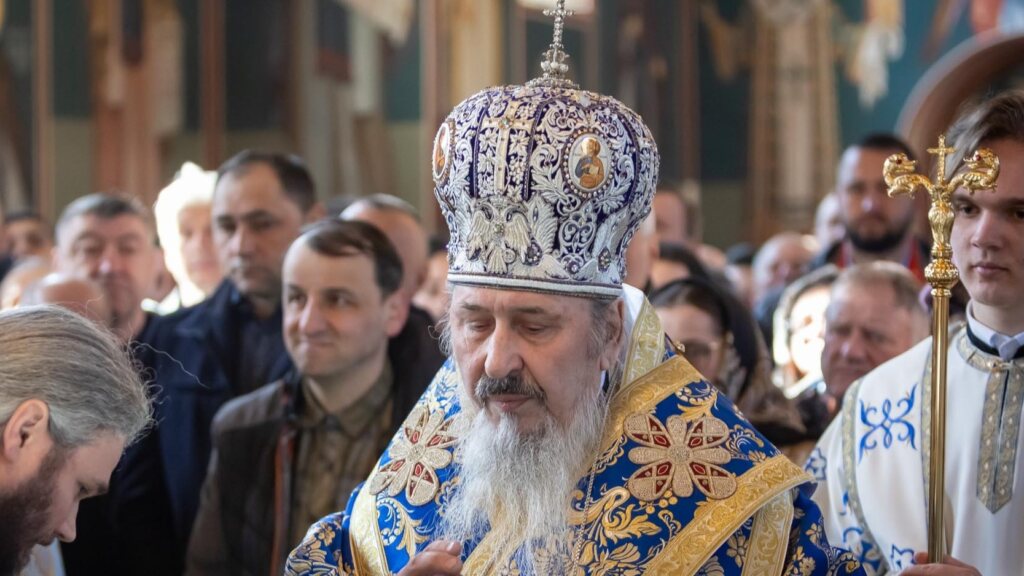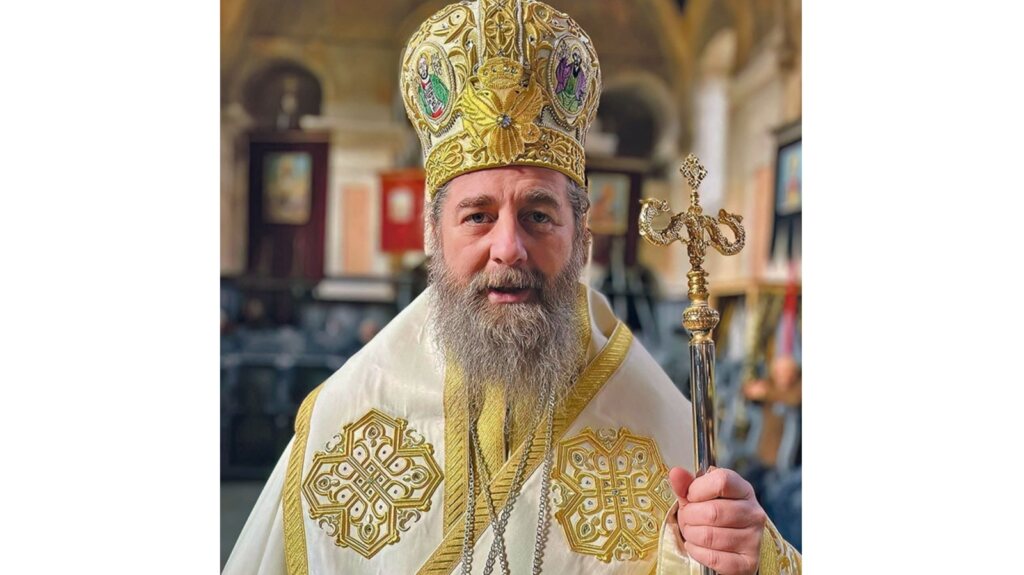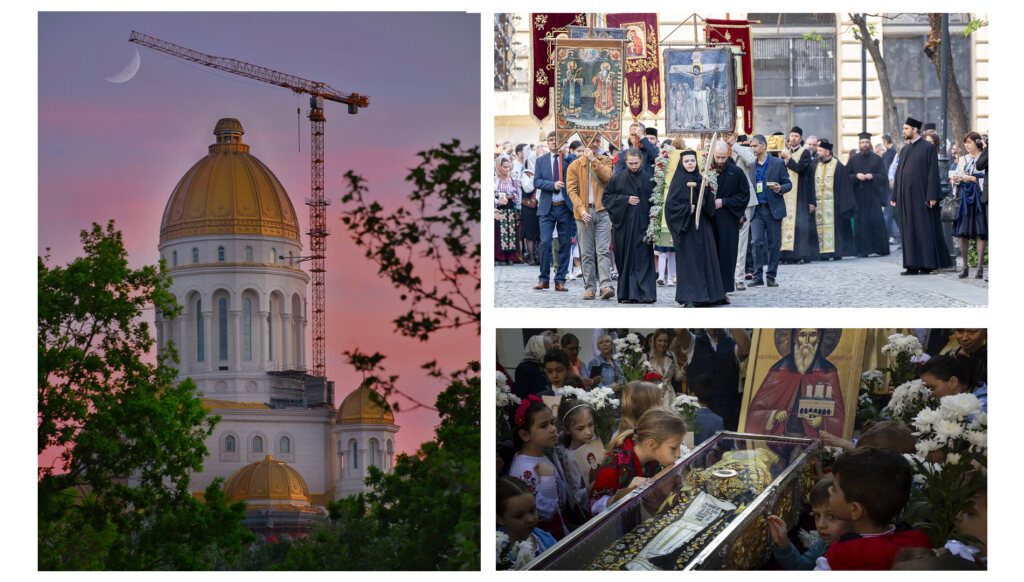Holy Martyr Eupsychius
He was born in the city of Caesarea in Cappadocia and received a Christian upbringing by his illustrious parents.
During the reign of Julian the Apostate (361-363), Saint Eupsychius entered into a Christian marriage.
At Caesarea there was a pagan temple to the goddess Fortuna, whom Julian the Apostate revered. As Eupsychius was going to his wedding, the pagans were offering sacrifice to the goddess Fortuna.
Saint Eupsychius was filled with zeal for the Lord, and he destroyed the temple. He knew that this would inevitably result in his punishment. Saint Eupsychius distributed all his possessions to the poor and prepared himself for martyrdom.
The enraged emperor Julian loosed his wrath not only upon Saint Eupsychius, but against all the inhabitants of this city. Some of the citizens were executed, while the more respectable were sent into exile. Christian clergy were drafted into military service, and he looted the churches of anything valuable. The city was deprived of its title Caesarea [i.e. “Imperial”] and resumed its original name of Maza. He also imposed a severe tax on the inhabitants. The emperor threatened to annihilate the city altogether, if the people did not build a new pagan temple in place of the one destroyed.
Julian tried to compel Saint Eupsychius to offer sacrifice to idols. For many days they tormented the saint on a rack, and also with iron claws. But his faith was firm, and the judge sentenced the martyr to be beheaded with a sword.
Then Julian embarked on a campaign against the Persians, marching through Cappadocia and approaching Caesarea. Danger threatened the city, since the emperor intended to raze it to its foundations. But then Saint Basil the Great (January 1), showing Julian the proper respect as sovereign authority, came out to meet him carrying with him three loaves of barley bread, which he ate. The emperor ordered his retainers to take the loaves, and to give Saint Basil a pinch of hay saying, “You have given us barley, cattle fodder. Now receive hay from us in return.”
The saint answered, “O Emperor, we bring you that which we ourselves eat, and you give us cattle feed. You mock us, since you, by your might, are not able to transform hay into bread, the essential food of mankind.”
Julian angrily retorted, “I’ll shove this hay down your throat when I return here from Persia. I shall raze this city to its very foundations, and plow over this ground and turn it into a field. I know that it was on your advice that the people dared to destroy the statues and temple of Fortuna.”
After this the emperor continued on his way, but soon perished in his campaign against the Persians. He was struck down in the year 363 by the holy Great Martyr Mercurius (November 24).
After the emperor’s demise, the Christians of the city of Caesarea built a splendid church over the grave of Saint Eupsychius, and from his holy relics they received help and healing.
Troparion, tone 3:
With steadfast heart you finished your course and cast down the wily foe, for you were armed with the power of the Cross, blest Eupsychius. You were numbered with the host of martyrs and have attained eternal glory. Always entreat Christ our God to save us who honor you.
Monk Martyr Archimandrite Bademus (Vadim)

He was born in the fourth century in the Persian city of Bithlapata, and was descended from a rich and illustrious family. In his youth, he was enlightened with the Christian teaching. The saint gave away all his wealth to the poor and withdrew into the wilderness, where he founded a monastery. He would go up on a mountain for solitary prayer, and once was permitted to behold the Glory of God.
During this period the Persian emperor Sapor (310-381) began to persecute Christians. They arrested Saint Bademus and his seven disciples, and tortured them in prison, hoping that they would renounce Christ and worship the sun and fire. But Saint Bademus and his disciples held firmly to the Christian Faith. The confessors spent four months in jail. All this time Saint Bademus was a spiritual leader and support for the Christians living in Persia.
One of the associates of the emperor Sapor, Nirsanes, was a Christian and suffered imprisonment for this. He did not hold up under torture and denied Christ, promising to fulfill whatever the emperor commanded. Sapor demanded that Nirsanes personally cut off the head of Saint Bademus. For this he was promised a reprieve and great rewards. Nirsanes was not able to overcome his fear of new tortures, and he agreed to follow the path of betrayal walked by Judas.
When they brought Saint Bademus to him, he took the sword and turned toward him, but overcome by conscience, he trembled and stood petrified. Saint Bademus said to him, “Has your wickedness now reached this point, Nirsanes, that you should not only renounce God, but also murder His servants? Woe to you, accursed one! What will you do on that day when you stand before the Dread Judgment Seat? What answer will you give to God? I am prepared to die for Christ, but I don’t want to receive death at your hands.”
Nirsanes struck with the sword, but his hands shook, and he could not behead the saint immediately, and the fire-worshippers began to call him a coward. The holy martyr Bademus stood motionless, enduring many terrible blows, until the murderer succeeded in cutting off his head.
The just punishment for his misdeeds were not slow in overtaking the hapless fellow. Tormented by his conscience, he did away with himself, throwing himself on a sword. After the death of the emperor Sapor, the seven disciples of Saint Bademus were released from prison.
Troparion — Tone 1
The image of God was truly preserved in you, O Father, / for you took up the Cross and followed Christ. / By so doing you taught us to disregard the flesh for it passes away / but to care instead for the soul, since it is immortal. / Therefore your spirit, venerable Bademus, rejoices with the angels.
Tr by oca.org






